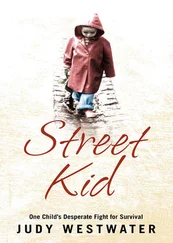The group had a very strict no drugs or drink rule. Instead followers were encouraged to ‘get high on Jesus’.
A few weeks after arriving in Paris, Marcel received the news that his brother Frederique was dead. About a year earlier Frederique had been committed to an asylum. In those days they could be brutal places where doctors often tested out experimental drugs or treatments, like lobotomies, on patients. Frederique had been unable to survive this torture. He had escaped through a barred window and killed himself by jumping into a quarry. They found his body three days later. For Marcel this was tragic news.
He was baptised shortly afterwards within the cult and renamed Moonlight.
All new recruits were expected take part in several hours of Bible study each day. They read the New Testament and took part in ‘inspiration’ classes, where disciples sang, danced and gave out group hugs. They even had a special term for the hugs – love bombing.
At the weekends they went out with more experienced group members who taught them how to raise funds by selling flyers or begging for donations. They also went on evangelical road trips to different cities to preach the word of God. On these trips they were encouraged to ‘live by faith’, which basically meant not spending any money and attempting to solicit free meals and lodging. More often than not they didn’t have much success and would find themselves huddled up in their thin sleeping bags in freezing basements or car parks. Most thought that this was all incredibly exciting.
Whatever funds they did raise they were expected to bring back to the group. Only a maximum of 10 per cent could be set aside for subsistence. That meant if they raised 100 French francs a day, only 10 francs went towards their food.
Children of God leader David Berg was at this time based in California, but he very quickly became a huge influence on his young followers overseas. They were encouraged to read Berg’s prolific writings, known as Mo letters, and to listen to his tape-recorded sermons. He became a role model, almost like a parent, who gave his disciples guidance and advice about life.
Mostly, Berg’s writings were a treatise on the evils of the ‘system’ world – governments, corporations and people who had jobs. Berg claimed to be a prophet, saying God had personally given him a message, which foretold the end of the world. The End Time Tribulation, as it was known, would be marked by a series of wars and natural disasters. He used the threat of nuclear war and imminent global financial crisis to back this up. To a naïve hippy like Marcel this was all too easy to swallow. Berg promised his followers that when the End Time came they would be God’s Chosen Warriors at the battle of Armageddon. They would fight the Antichrist in the skies and be the saviours of a new, more peaceful world. He backed it up with a series of sci-fi-style posters depicting the fight. Antichrist soldiers in grey uniforms and helmets zapping scantily clad young women into oblivion before they float up to a heavenly paradise, their faces ecstatic with joy.
His young devotees lapped it all up, whipping their tambourines to new heights of frenzy as they hung onto his every word.
Marcel was a fast and enthusiastic learner, carrying out each new task with a joyful smile on his face. His eagerness to please caught the attention of the French leadership, and after a few months he was given the responsibility of leading a small fundraising team. At the end of each month all funds raised within the house were totalled up, less the 10 per cent spent on evangelism costs. Half of what was left was kept back to pay for the house bills – food, heating and clothes. The other 50 per cent was posted to Berg’s headquarters. No one questioned why this was.
New recruits – meaning new mouths to feed – arrived all the time. When supplies fell low followers were simply instructed to pray, and if they went without they were told they hadn’t prayed hard enough.
After a year or so my dad was promoted again, this time to Home Shepherd, meaning he was responsible for ensuring the good behaviour (no alcohol, drugs or sex) of his housemates. He was charming and popular, but he could be stern and command respect when needed, so he excelled in this new role.
He climbed the ladder even higher at the age of 19 by reaching the rank of Regional Shepherd. His role was like that of a roving manager, creating new communes in different towns and leading a musical troupe around the country singing folk songs in restaurants, schools and old people’s homes. He was expected to spread himself across several different communes, often hundreds of kilometres apart. The group didn’t provide vehicles or pay for transport, so he had to hitchhike everywhere. He often arrived at a house after days of travelling and sleeping rough to find himself bedded down in a corridor or on a cold kitchen floor. But he didn’t care because for the first time in his life he had a purpose. The fact that Children of God missionaries were young beautiful people who seemed to love their life and exude a sense of fun and passion meant it wasn’t too hard for them to win over others. Marcel would tell anyone who listened how God and the group had saved him from a life of despair. Every recruit he brought in was seen as a soul saved and another brownie point for him in the eyes of the leadership. His ascent through the ranks seemed assured.
In the early summer of 1976, Marcel was leading a team of four ‘on the road’ disciples. They had hitchhiked across the west coast of France, busking in bars and selling the ‘prophet’s messages’ – pamphlets written by David Berg. By now Berg’s stature had grown, so much so that his followers referred to him as either Moses David, King David or Father David.
One of Marcel’s team members left due to ill health so he requested that the leadership find him a replacement.
Earlier that spring he had gone to a training centre for new recruits in the city of Bordeaux to stock up on boxes of pamphlets. As the troupe performed a few songs a new ‘babe’, 18-year-old Geneviève, danced for them. Marcel found her alluring but, wary of breaking the rules, he held back. Luckily, she was to be his new team member.
The pair soon fell in love.
‘I want to play! Let me. They won’t let me play. Mommy, tell them!’ I stamped my feet in the sand and stuck my bottom lip so far out it could catch flies.
‘Who, ma chérie ? What’s the matter?’ smiled my mother absently from where she was sitting on a blanket tending to my baby half-sister, Thérèse. She didn’t look up but continued to blow big fat raspberry kisses on the baby’s face, causing her to gurgle with pleasure. Seeing that added jealousy to my anger.
‘Them,’ I yelled, pointing angrily at my elder brothers who were jumping up and down on a driftwood log, pretending it was a pirate ship. ‘They won’t let me play with them.’
‘So play something else, Natacha,’ she replied without taking her gaze from the baby.
I let out a grunt of rage. Even at the age of three I had a real temper when I didn’t get my way. Leah was sitting next to my mother. She cocked an eyebrow at me and when I glared back at her she burst out laughing indulgently. I ran to her across the sand, throwing myself onto her lap, burying my head into her soft bosom and wrapping my little fingers around her frizzy curls.
Leah was baby Thérèse’s mother and my father’s lover. Thérèse was his child. They lived with us in our new home, a group commune in Phuket, Thailand, that we shared with 20 or so other adults and kids. The whole group was my family but within that I had my dad, my mom, Leah, three big brothers and baby Thérèse. The set-up might have been unusual but to me it was completely normal, with the added bonus that I had two mommies when most little girls only got one.
Читать дальше












